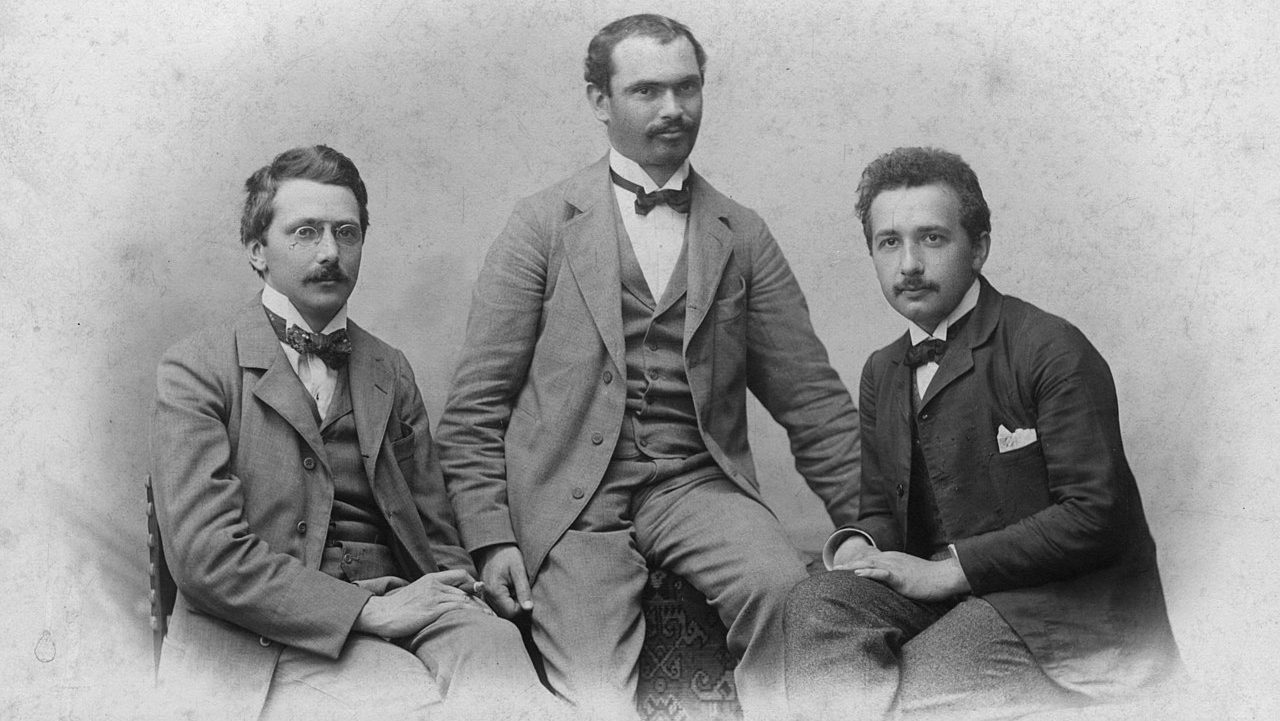Ask Ethan: How can science PhDs succeed outside of academia?

- From undergraduate through graduate school, plus postdoctoral work, research and teaching positions, and beyond, most academics feel ill-equipped to succeed outside of the academic environment.
- However, gaining a PhD does more than just give you the specialized knowledge needed to succeed in academia, but many skills that are instantly transferrable to the workplace.
- You’ve grown your brain in unique ways and developed a toolkit that cannot be replicated via any other means. Now, learn to put it to good use.
For some of us, a PhD represents the culmination of a long journey, where we’ve transformed ourselves from mere curious students to bona fide experts in the specific sub-field of the area of study that interests us the most. In the sciences, in particular, it means we’ve gained a very special set of knowledge that, in general, only a few thousand people on Earth might fully share. But once that goal has been reached, it’s not a set of laurels that we rest on, but rather a stepping stone toward whatever comes next for the rest of our lives.
While it’s easy to argue that the academic training makes great preparation for a career in either science research or academia itself, there’s much, much more to life than those limited pursuits. With far more newly-minted PhDs than there are research and academic positions available each year, many of us — whether by choice or not — will find ourselves looking at non-academic careers. Well, what are we supposed to do about that? That’s what [name redacted] wants to know, asking:
“I’m currently in academia… The academic job market is even worse than usual right now, though, so I’ve been thinking about whether I ought to consider other options. I’m curious how the transition from academia to outreach worked for you, what kinds of steps you went through on the way. What kind of outreach work did you do when you first started getting involved, and how did it grow? How did you balance it with teaching, in the years when you were doing both?”
It’s an unusually personal question for our column here, but one that’s more relevant than ever in 2022. Let’s break it down as best as possible.

First off, if you want to think about where you’re headed, it’s important to think about who you are and how you got to this point in the first place. For example, why did you initially take the steps to get your PhD? Why did you apply to graduate school; why did you choose the field you did; why did you wind up working alongside your advisor; why did you choose your thesis topic and perform the research that you did? Some common motivations include:
- Because there was a thing I felt, internally, that I absolutely must know, and that my life would be incomplete if I didn’t learn it.
- Because I started doing it, and I realized that as long as I was capable of making a living doing this, there was nothing else in the world that I’d rather do.
- Because I majored in this field as an undergraduate, felt that graduate school was the next logical step, and I was good enough to keep taking steps and now here I am.
- Because I had a passion about certain big questions and an aptitude for this work, and I was excited to contribute my own ideas to the field.
- Because I was considering other options for what to do with my life, and they all seemed worse, so I went with the least-worst option and chose to go to graduate school.
There aren’t really “right” or “wrong” motivations when it comes to the question of why someone embarks on an endeavor in the first place, but — and I’m speaking based on my own experiences here, not on any sort of peer-reviewed research — different answers to these questions tend to lead people to vastly different outcomes when it comes to the graduate school experience and beyond.

Of the people I know who succeeded in graduate school — and by succeeded, I mean, “found a research topic they liked, successfully obtained a PhD, and maintained their excitement, post-PhD, about continuing to work toward solving the puzzles they’re passionate about” — having the feelings outlined in either reasons #1 or #2 (or both) is mandatory.
People who let aptitude, rather than passion, be the primary driver of their careers (#3) often struggle to make their own novel contributions to a field specifically because they don’t play around with it to the limits of their creative imaginations for fun. People who are passionately idea-driven (#4) suffer in a different way: in failing to be humble about their own lack-of-knowledge about what’s already known surrounding these big questions, as they’re reluctant to identify and replace their misconceptions with correct information. And people who are driven by little more than inertia (#5) often flounder in graduate school without a guiding aim to propel them forward in their studies. Unless they find a good (i.e., better than this one) reason to continue their studies, they rarely make it to the completion of a PhD.

I’ll say that in different words for emphasis: of all the academics I know in the sciences, people who’ve gotten their PhDs and were happy continuing their research well into the future after their PhDs, I do not know anyone who didn’t either feel that:
- there are things I must know and/or puzzles that must be solved, and my life will be incomplete if I don’t learn them and/or spend my time attempting to solve them,
- or that I love the day-to-day work of doing what I do, and as long as this remains an option for what I can do, it’s what I want to be doing.
If you strongly feel one or both of these things, that’s an excellent argument you can make to yourself for both why you should go to graduate school and also why you should attempt to remain in academia for as long as you can and want to.
But not everyone feels these things, and there are also plenty of people who felt these things at one point about what they were doing, but no longer do. To those of you out there who feel differently — and by the way, do not expect the overwhelming majority of your colleagues who’ve remained in academia to relate — it would serve you well to have a crisis.

“Excuse me,” I can hear you panicking, “did you just tell me to go and have a crisis?”
Crisis is often looked at as a dirty word in our society; like something you only experience when your dreams and ambitions and hopes are suddenly dashed and taken away from you. You have a crisis because you failed.
But that’s not true, and I want to disabuse you of that notion. A crisis isn’t a sign of failure or insufficiency; a crisis is simply a turning point: something that you must reckon with as soon as you’re able to once you recognize that the path you’re presently on is no longer leading you to a place you want to go.
So, what are you to do? Again, I’m not speaking from a scientific perspective here, but a personal one, and here’s what I’d recommend.
- Take stock. Think about where you are and how you got here. What did you love about what you were doing to bring you to this point, and what elements are different now? What did you expect you were going to experience, and how is what you’re experiencing now different from that?
- Step back. If you rush up to the edge of a cliff and don’t want to go over that edge, it’s difficult to see what a path forward looks like. If you take some steps back, however, suddenly “over the edge” and “away from the edge” don’t seem like the only options. So think about yourself, internally. What is it that isn’t happening in your day-to-day work that you are missing, that used to make you happy or that you expected would make you happy but that isn’t working now? What is it that would make you happy, and/or has made you happy in the past, that you think you could enjoy going forward?

- Identify what you can do. This is a really important step that most people overlook when they’re thinking about what comes next in their lives: identifying what skills, tools, and talents they’ve already worked to develop. Life is not exclusively about shoring up your weaknesses; most of what we’d consider “success” involves playing to your strengths, and applying your already-developed toolkit to areas that would benefit from the skills you’ve cultivated and the talents you possess.
- What’s the next dream? You know what you can do, what you’re capable of, and you’ve also identified what it is you don’t want to be doing any longer. So what comes next? What’s the next step for you? What’s the thing you want to be doing? What would you like to be applying your skills, talents, and mental energy toward? If you find that new thing that you do have a passion for, that’s a tremendous step in the process of moving forward. After all, after coming up to the edge, stepping back, and looking around, this step is basically pointing yourself in the right direction.
- And, finally, how can I make that dream a reality? You’ve figured out what you want to do next? That’s great. Your next step, then, is to do it. You got to be good at your field by working to solve problems within it; those problems you solved helped you develop the skills you needed for competence and, eventually, mastery. Want to paint? Better start painting. Want to swim? Start swimming. Want to write? Start writing. You have already done the hardest part: you’ve gained a set of skills and a unique toolkit that very few people in the world also possess. Fold that in with what you’re already both capable of and passionate about, and leverage those skills to start taking those next steps in your life.

The thing you have to realize is that, although this advice is specifically geared toward science PhDs who are thinking about careers outside of their precise field of study — outside of what their specific training has prepared them for — this is widely applicable as general advice for turning your dreams of what you’d like to do, whatever it may be, into an achievable goal. Charting a general course forward, of course, is much easier than actually making it happen, and it’s also easier than convincing others to take a chance on you with your out-of-the-box, unconventional background.
For me, my “crisis” moment came in 2007, during my time as a postdoctoral researcher. I already had my PhD in theoretical astrophysics, and three of my other skills that set me a little bit apart from others were
- my propensity for writing, communication, and the humanities in general (I also majored in Classics as a Hellenophile as an undergraduate),
- an unusually broad-and-deep background in physics, astronomy, and other scientific fields (I did projects in both observational and theoretical cosmology as a researcher, and studied mathematics, biology, chemistry, geophysics, and computer science at an advanced level as an undergraduate),
- and I had a background in teaching, outreach, and science communication, as I had been tutoring people since Junior High School and spent a year as a public school teacher before ever starting my graduate studies.
So when I found myself not enjoying what I had expected my “dream job” to be, I went and had a crisis.

There were a lot of steps that I took, some of which were helpful and some of which weren’t. I tried talking with my supervisor about what was dissatisfying for me about the position I was in. I tried getting involved with various communications and outreach events in my area. I began a graduate program in science education. I started giving public lectures. I looked at the people who were successful science communicators and tried to emulate what they were doing.
But in January of 2008, I simply started writing. I chose a web domain — startswithabang.com — and started writing. I set goals for myself for how often I’d write, for how much time I’d spend on it, and to “do the best job I could do in the time I had to do it.” I quit my postdoc six months later, moved to a place where I’d be happier living and found jobs at teaching colleges (and elsewhere) for many years; it’s only since the mid-2010s that I’ve been able to write full-time and have that be my primary source of income.
The specifics of how I went about my own life, however, aren’t as relevant today, because the world is a very different place than it was 15 years ago, and the career I have today didn’t even exist when I started graduate school. If I were in an analogous situation today to the one I found myself in back in 2007 and took the same steps, I would doubtlessly not achieve the same successes. There is no “one right way” to do things.

But the biggest, most important piece of advice I can give you is this: you must believe in yourself. You must absolutely not, in your own mind, short-change yourself when it comes to what you’re capable of in terms of the knowledge and skills and talents you possess. When you lack those external inputs that encourage you — when you don’t have a job, or money, or a place to live, or any certain prospects of what might come next — you need to be able to look inwards, into yourself, and tap into that unshakeable reservoir at your core. To know your own self-worth, and to find that source of inner strength.
There is no surefire formula to successfully transition from an academic career to one in the real world, whether that’s in the business, finance, technology, or journalism spaces. There are lots and lots and lots of people and organizations that are very happy to have you pay them for the privilege of teaching you tips and strategies that may or may not actually be helpful. But my advice? If you want to do something different, then take what you know and start doing it.
When they made the film Miracle, based on the events of the 1980 Winter Olympics where the United States men’s ice hockey team defeated the Soviet Union and then Canada to win the gold medal, they had two options as to how to cast the film. They could either cast actors and teach them how to play convincing hockey, or they could cast hockey players and teach them how to act. They went with the latter option, because it takes a lifetime on ice skates to appear proficient as a professional hockey player. You already did the hard work of developing the skills that one gains in the process of earning a PhD. Now, take those skills and put them to good use, and — with a little bit of good luck — you’ll achieve the goals you set for yourself.
Send in your Ask Ethan questions to startswithabang at gmail dot com!




